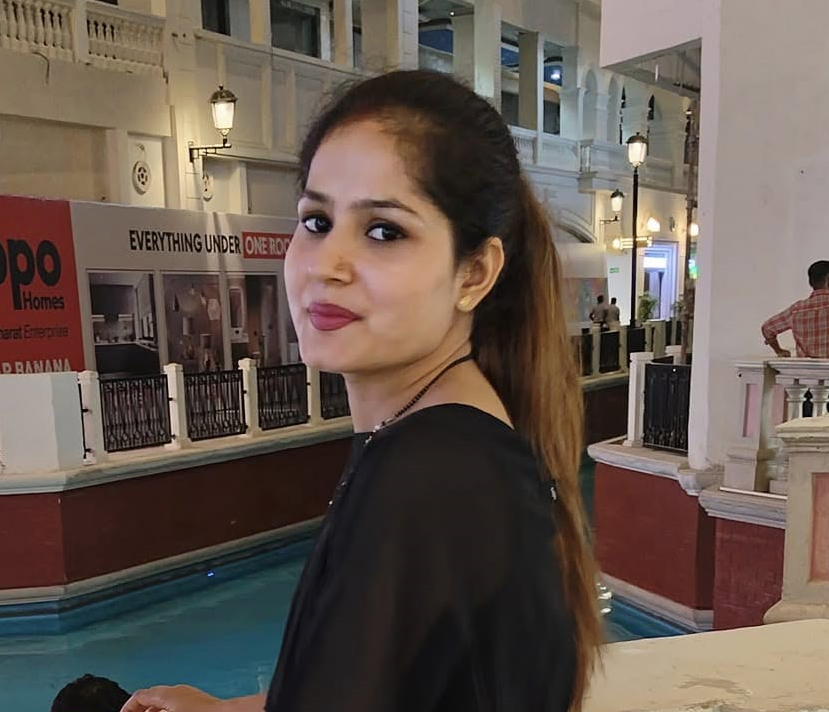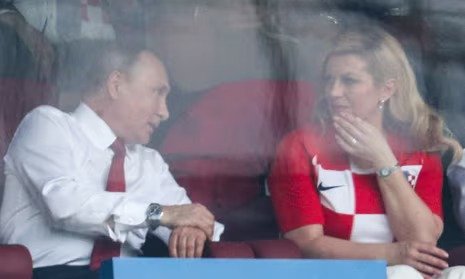The world witnessed a delightful moment of unguarded humor when Russian President Vladimir Putin met Malaysian Prime Minister Anwar Ibrahim at the Kremlin.
As the two leaders toured the opulent St. Andrew’s Hall, Putin pointed at the three gilded thrones arranged behind them and posed a seemingly innocent question: “There are three thrones here—one for the Tsar, one for his wife; who is the third for?” Without missing a beat, Anwar replied, “The second wife,” instantly breaking the ice and prompting hearty laughter across both delegations. This playful exchange, captured in still photographs and widely reported by NDTV, quickly went viral across social media and news outlets worldwide—an unexpected yet revealing glimpse into Putin’s spontaneous humor and diplomatic charm.
1. The Banter Unpacked
The scene was set against the backdrop of Russia’s grandest ceremonial hall, where every object echoes centuries of imperial tradition. The three golden thrones represent the Tsar, the Tsarina, and the Dowager Empress—symbols of continuity and hierarchy in the Romanov legacy. Yet, President Putin’s question cleverly invited Prime Minister Anwar to step outside the usual formality.
When Anwar quipped, “The second wife,” cameras clicked furiously, and dignitaries erupted in laughter. Putin, known for his measured public demeanor, leaned forward with a playful smile and praised the joke as “the response of a true Muslim, a true representative of Islamic culture.” Anwar, still chuckling, clarified his actual family situation—he has only one wife—before explaining the historical symbolism of the three thrones.
This lighthearted moment offered more than just entertainment. It showcased mutual respect: Putin acknowledged Anwar’s wit, while Anwar showed deference by engaging playfully. In diplomatic circles, such unscripted humor can soften tensions and foster goodwill—proof that even the world’s most powerful leaders appreciate a well-timed jest.
2. Why the Exchange Resonated Globally
Authenticity: In an age of tightly scripted statecraft, this caught-on-camera spontaneity felt genuine. Audiences around the world crave authenticity, and seeing Putin laugh as freely as any of us created a powerful connection.
-
Cross-Cultural Respect: By framing Anwar’s joke as emblematic of Islamic tradition, Putin bridged cultures, turning a simple quip into a moment of interfaith appreciation. Such gestures matter in a world rife with misunderstanding.
-
Visual Power: Though no video clip circulated officially, still images of the leaders sharing a laugh flooded news sites and social feeds. A single photograph can speak volumes—viewers read the warmth in their expressions.
-
Media Amplification: NDTV’s coverage, with a catchy headline and vivid descriptions, propelled the story beyond diplomatic bulletins into mainstream conversation. Within hours, blogs, forums, and comment threads buzzed about Putin’s unexpected humor.
3. Diplomatic Context Behind the Laughter
Beyond the laughter lay substantive talks. During his first official visit in nearly twenty years, Prime Minister Anwar Ibrahim and President Putin discussed:
-
Energy Collaboration: Russia and Malaysia explored joint ventures in oil, gas, and renewable energy, aiming to diversify both nations’ energy portfolios. Malaysian investment in Siberian gas fields and Russian expertise in liquefied natural gas were key topics.
-
Trade and Technology: Delegations reviewed agreements to boost bilateral trade, especially in agriculture technology, semiconductors, and defense manufacturing. Both sides eyed co-development of drones and cybersecurity partnerships.
-
Security Concerns: Anwar raised Malaysia’s enduring demand for justice over the 2014 MH17 tragedy. While Putin dismissed the United Nations’ inquiry as biased, he did agree to maintain dialogue on accountability, signaling a willingness to keep channels open.
Amid weighty subjects, the throne jest lightened the mood—demonstrating that diplomacy need not be solemn at every turn. Putin balanced strategic rigor with conviviality, reinforcing his image as both a shrewd statesman and a relatable human being.
4. The Power of Political Humor
Political humor is a potent tool. When leaders laugh together, they reveal vulnerability, foster trust, and humanize otherwise distant offices. For Putin, often portrayed as stern and unemotional, this exchange offered a refreshing counter-narrative. Memes and shareable graphics highlighting his smile and Anwar’s playful reply flooded social networks.
Observers noted that humor can defuse potential friction—if two heads of state can share a joke, perhaps other disagreements are more surmountable. Moreover, media outlets leveraged the story to attract readers, proving that even serious news cycles benefit from a lighthearted interlude.
5. Conclusion: More Than a Joke
Vladimir Putin’s off-the-cuff throne joke with Malaysia’s Prime Minister Anwar Ibrahim transcended mere amusement. It became a lesson in global leadership: authenticity wins hearts, cross-cultural respect builds bridges, and a dash of humor humanizes power. As world affairs grow ever more complex, such moments remind us that at the heart of diplomacy lies simple human connection—sometimes best expressed with a well-timed laugh.

Shweta is a passionate writer and creative thinker dedicated to sharing knowledge and inspiring readers through engaging content. With a keen eye for detail and a love for storytelling, Shweta crafts articles that inform, educate, and entertain. You’ll find her exploring new ideas, reading, or pursuing her other creative interests when she’s not writing. Stay tuned for more insights and inspiration from Shweta!







![Revolutionary SEO Software to Make Your Articles Go Viral [2024]](https://dollerfinance.com/wp-content/uploads/2024/11/Untitled-design-6-100x75.png)
